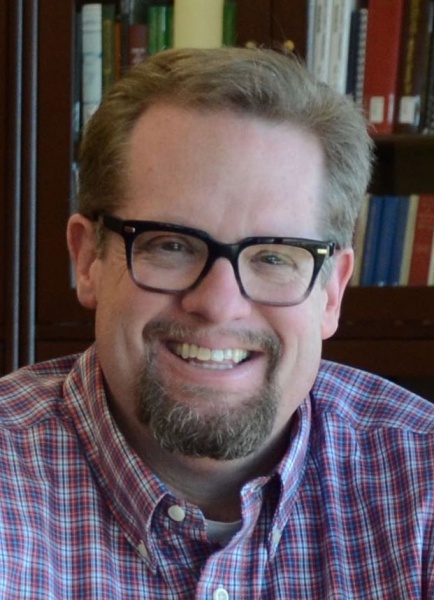Just as in 1993, the issue of government healthcare has risen to the top of the public agenda, taking attention away from war in the Middle East. While the iconic “Harry and Louise” have switched sides, the fundamental issues remain the same. Healthcare provides a giant chunk of our national economic activity. Though government is significantly involved through Medicare (now facing future insolvency) and Medicaid, the question is whether the government’s control over healthcare, either direct or indirect, should become even more extensive.
In a fast-paced society, we have a tendency to leap past the basic questions into a morass of detail. Single payer or government as one provider among many? Mandates requiring every citizen to buy health insurance? Control over utilization by some board of experts? These are all important questions, but they should come after a consideration of our core values. The United States prides itself on being a nation with citizens possessed of a freedom given by God and thus not subject to the whims of human government.
The great Wilhelm Roepke, architect of West Germany’s miraculous post-WWII economic recovery, viewed the tendency toward ever-larger government with alarm. He correctly ascertained that the more areas of life the government brings under its responsibility, the more it will eventually dictate the basic conditions of those areas of life. Democracy combined with a lack of appreciation for human independence from the government results in a “pre-totalitarian” society.
There are many prudential reasons to oppose the expansion of government healthcare. First, American government has never functioned very well as a “retail” style service provider. The lack of true prices results in rationing on the basis of who is willing to wait the most patiently. Second, we have a federal system in which the states have the role of testing new public policies. State healthcare initiatives have largely failed. Third, the proposed government plans make no provision for preventing the trial lawyer windfalls that are parasitical on the system and have caused tremendous medical inflation. Fourth, government-driven expansion of insurance seems wrongheaded when third party payment is a recipe for increasing cost. In the sectors where patients pay doctors directly (plastic surgery and lasik procedures), real prices have gone down as the procedures have actually improved.
But the prudential reasons are less important than the fundamental questions about our system of government. If we move from being a republic where certain freedoms (not only freedom of speech and religion, but also freedom of contract and freedom to own private property) are basically non-negotiable, to a simple mass democracy in which shifting coalitions of voters extract resources from their opponents, then we have lost the American genius of ordered liberty. The American founders did not set out to achieve a more perfect democracy. They set out to create and maintain a free republic.
The key to running a free republic characterized by ordered liberty is the citizens themselves. Unless the citizens embrace virtue, convicted by God that they must do what is right rather than merely indulging their wills and appetites, their hard fought liberty will be lost. The fate of a people who will not restrain themselves is rule by a government that will increasingly exercise control over them. The American idea was that our people should be citizens rather than subjects. American citizens, once far more country than city in origin, were to be free to provide for themselves rather than gathering in coalitions to ask for government largesse funded on the backs of the productive efforts of others.
Is healthcare important? Yes. Do we have a common duty to look after our fellow citizens? Indeed. But is this need adequate reason to endanger freedom (the dearest political essence of all) by opening the door to government control of 17 percent of the domestic economy?
Consider our neighbor Cuba, off the shore of Key West. When conservatives criticize Castro’s (permanent) revolutionary regime by noting the utter lack of civil rights and liberties, sympathetic defenders leap forth to proclaim that civil rights aren’t everything. The Cubans, they say, have economic rights. For example, they have socialized medicine. But readers, the defenders of the Cuban travesty have confused economic rights for economic dependency. Private property is an economic right. The fruit of one’s labors is an economic right. Having the government give things to you is more like a voluntary addiction. The Cubans have their healthcare, but they live in a nation where forward progress nearly came to a halt in the 1960s and they have no voice. They are dependent on a government that acts like a bad boyfriend, sometimes kind but more often abusive.
Is it unfair or extreme to bring up the example of Cuba? We are, of course, so very far from their circumstances. The point is not to provoke fear, but to promote reflection. Once government begins to control something, it rarely relinquishes that control. If our government increases its role in providing healthcare to citizens, it will limit the freedoms of doctors, pharmacists, patients, hospitals, and others. Government is a standardizer, a utilization controller, and a default force for secularization. To the extent it promotes dependency, we will become that much less free and resources will be diverted from a productive private sector to a rarely innovative public sector. To the degree to which the state controls utilization, it will be far less resistible than even the most aggressive HMO plan managers. As it creates rules for the behavior of practitioners, it may force doctors, pharmacists, and hospitals with conscientious objections out of a field already characterized by shortages.
The debate over government healthcare is an important one, but let us remind our public servants not to forget first principles. Don’t forget freedom. And remember that many have come to rue the existence of grand projects of man which once initiated are terribly difficult to reverse. Better perhaps, not to ask for an earthly leviathan to care for us.



